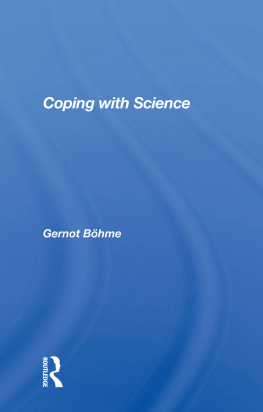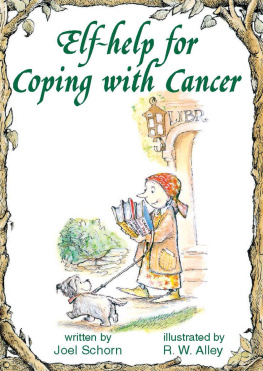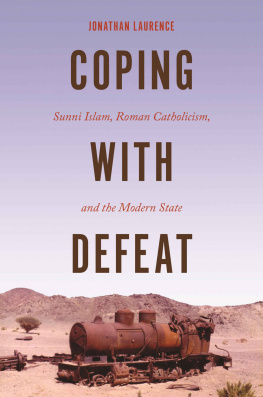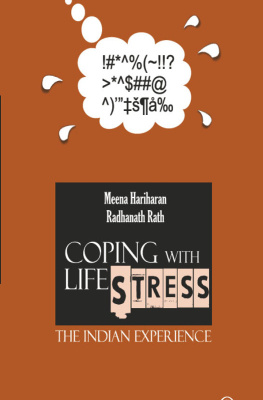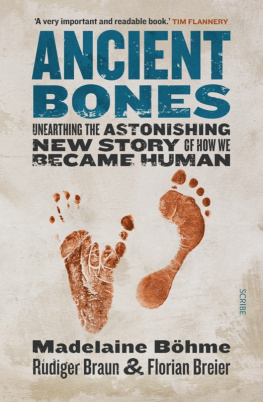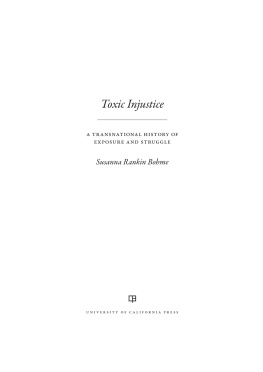First published 1992 by Westview Press, Inc.
Published 2018 by Routledge
52 Vanderbilt Avenue, New York, NY 10017
2 Park Square, Milton Park, Abingdon, Oxon OX14 4RN
Routledge is an imprint of the Taylor & Francis Group, an informa business
Copyright 1992 Taylor & Francis
All rights reserved. No part of this book may be reprinted or reproduced or utilised in any form or by any electronic, mechanical, or other means, now known or hereafter invented, including photocopying and recording, or in any information storage or retrieval system, without permission in writing from the publishers.
Notice:
Product or corporate names may be trademarks or registered trademarks, and are used only for identification and explanation without intent to infringe.
Library of Congress Cataloging-in-Publication Data
Bhme, Gernot.
Coping with science / Gernot Bhme.
p. cm.
Includes bibliographical references and index.
ISBN 0-8133-1237-X
1. SciencePhilosophy. 2. ScienceSocial aspects. I. Title.
Q175.G419 1992
303.48'3dc20
91-42885
CIP
ISBN 13: 978-0-367-00410-1 (hbk)
1
The End of the Baconian Age
The usual practice is to name an epoch only when one has left it. It is only then that a feature, scarcely noticed beforehand, becomes conspicuous as a characteristic of the epoch; previously, such a feature would have been regarded as self-evident. The end of an epoch is thus characterized by the loss of self-evident truths. If we have occasion today to designate modern science as Bacon's epoch, then it is because we, in our relation to science, have lost something believed to be self-evident namely, the basic conviction that scientific and technological progress is concomitantly human progress. This basic conviction was introduced into the world by Francis Bacon, and the beginning of the epoch of modern science was thus initiated. The conviction that scientific-technological progress is concomitantly human progress was not a self-evident truth before Bacon. On the contrary, the idea of progress was entirely foreign to the ancient world,human race. Let us consider the famous Aphorism CXXIX from the first book of Novum Organum:
For the benefits of discoveries may extend to the whole race of man, civil benefits only to particular places; the latter last not beyond a few ages, the former through all time. Moreover, the reformation of a state in civil matters is seldom brought in without violence and confusion; but discoveries carry blessings with them, and confer benefits without causing harm or sorrow to any.
What constitutes Bacon's program? Briefly, it organizes science into an enterprise of inventions and institutionalizes it socially in such a way that its inventions are implemented for the benefit of man. Bacon's Novum Organum serves the first objective, and the second one is described in the utopia "New Atlantis."
The main intention of Novum Organum consists of making science into an innovative system. Since ancient times, it was indeed the primary objective of a scientist "to be learned," i.e., to know what was humanly possible to know.
This meta-level invention resulted in an epoch-making change for the system of human knowledge. From that point forward, knowledge was no longer a complete canon, nor one that could be completed; rather, it became the prototype of a continually self-renewing system. After Bacon, the main objective of the scientist was no longer to be a learned person but, instead, to be someone who has made or can make a "contribution"that is, a contribution to the body of collective knowledge, which is continually being enlarged and renewed. The self-confidence of this new type of scientist created by Bacon was aptly expressed centuries later by Max Weber in his lecture entitled "Science as a Vocation": "In science, each of us knows that what he has accomplished will be Science as research, i.e., as a collective system organized around innovation: This was Bacon's demand, and that is what science became after Bacon.
The social integration of science and its organization around the principle of usefulness was mentioned as the second aim of the Baconian program. In Bacon's Utopian state "New Atlantis," science is organized as "Salomon's House." Bacon conceptualized this institution as a second authority that, along with (and yet independent from) the political authority, would look after the public good. Salomon's House would operate a large number of research laboratories in which science is organized not in terms of disciplines but according to social use and fields of application. Thus, for instance, it would provide climate laboratories, labs for studying animal husbandry, optical workshops, and so on. The collection and distribution of knowledge is organized in Salomon's House, as is the popularization of knowledge and, conversely, the identification of knowledge gaps in the social field of application. In addition, Salomon's House would offer a series of direct social services, such as the forecasting of bad weather and earthquakes, floods, and possible famines. It also would organize the public health service through state officials.
Salomon's House was the concrete realization of Bacon's conviction that human conditions can be improved primarily through the development of science and technology. In this context, he saw the materialization of the biblical command "Subdue the Earth." The domination of the human species over all of nature ( Novum Organum, Aphorism CXXIX) is to be achieved only through development of our knowledge of nature, for (to quote Aphorism III) "Human knowledge and human power meet in one; for where the cause is not known the effect cannot be produced. Nature to be commanded must be obeyed; and that which in contemplation is as the cause is in operation as the rule." Here, Bacon suggests that man's domination of nature consists not in his instigation of something against nature (recall antiquity's comprehension of mechanics) but in his being able to use it for his own purposes by means of a precise knowledge of natural causes. Required, then, is the transformation of causal knowledge into rules for action, i.e., into technical procedures. Now, the crucial point here is that Bacon, in his programmatic work "New Atlantis," did not stop at this quasi-epistemological insight but, rather, called for a social institution that would perform the mediation of knowledge of nature and social needs. He thereby projected a society in which scientific knowledge itself is a social authority and in which science as research constitutes an important part of public life. This society we now have.
is especially necessary in this connection, given the breakdown of real socialism.
This sobering effect, under further investigation here, allows us to pose the question today as to whether Bacon had no doubt whatsoever about the identification of scientific-technological progress with human progress. This question must be answered in the negative, although one does find in Bacon's model the rudiments of a distinction between neutral knowledge and morally responsible applicationa distinction that has long served as a defense for science in the twentieth century. Note that paragraph CXXIX of Novum Organum closes with the following passage:


